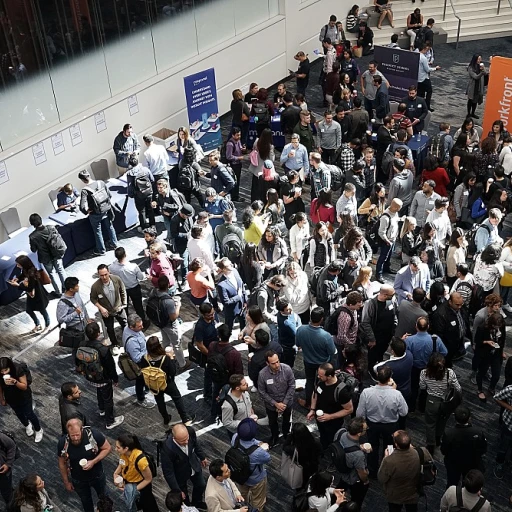
What is involved in a pre-employment background check
Key Components of Pre-Employment Screening
The pre-employment background check process is a critical step in the hiring journey. Employers use background screening to verify the information provided by candidates and to assess any potential risks before making hiring decisions. This process helps companies ensure that their new hires meet the standards required for the role and align with the company’s values.
- Identity verification: Confirming the candidate’s identity through government-issued documents.
- Employment history: Checking previous job titles, dates of employment, and reasons for leaving to validate the candidate’s work experience.
- Criminal background check: Reviewing criminal records to identify any convictions that may impact the candidate’s suitability for the position.
- Education verification: Ensuring that the candidate’s educational qualifications are accurate and legitimate.
- Reference checks: Contacting previous employers or professional references to gain insights into the candidate’s work ethic and performance.
- Additional screenings: Depending on the role, some employers may also conduct credit checks, drug testing, or professional license verification.
Each of these background checks takes time, and the depth of the screening process can vary based on the employer’s requirements and the nature of the job. For example, positions that involve handling sensitive information or working with vulnerable populations often require more comprehensive background verification.
Understanding what is involved in a pre-employment background check helps candidates anticipate what employers are looking for and why certain checks take longer than others. For a deeper dive into the background check process and expert insights, you can read background check process insights from legal professionals.
As you move through the hiring process, knowing what’s included in employment background screening can help you prepare and avoid unnecessary delays. The next section will look at how long background checks typically take and what factors can influence turnaround times.
Average duration of background checks for job applicants
How Long Does a Background Check Usually Take?
When candidates reach the background screening stage, one of the first questions is: how long will the process take? The answer depends on several factors, but most pre employment background checks for job applicants are completed within three to five business days. However, some checks take longer, especially if the process involves multiple steps or manual verifications.
Employers typically want to move quickly, but the time required for an employment background check can vary based on the type of screening, the depth of the check, and the responsiveness of third parties. Criminal background checks, for example, may be completed in a day or two if records are digital and easily accessible. Employment history and education verification, on the other hand, can introduce delays if former employers or institutions are slow to respond.
- Standard turnaround times: 3–5 business days for most background checks
- Criminal record checks: 1–3 business days if records are digital
- Employment and education verification: 2–5 business days, sometimes longer
- International checks: May take a week or more due to additional verification steps
Some companies offer expedited background verification, but this can depend on the type of information being checked and the jurisdictions involved. For example, a long background check process may occur if a candidate has lived in multiple states or countries, or if the employer requires a more comprehensive screening.
It’s important for job seekers to understand that delays are not always a sign of problems. Sometimes, the hiring process is slowed by factors outside the employer’s control, such as court backlogs or slow responses from previous employers. The key is to stay patient and responsive if additional information is requested.
For more details on what a typical employment background check includes and how it can impact hiring decisions, you can read this background check sample and key trends guide.
Factors that can speed up or delay the process
Key Elements That Influence Background Check Timelines
When it comes to the employment background check process, the time it takes can vary widely. Several factors play a role in how long background checks take, and understanding these can help both employers and candidates manage expectations during the hiring process.- Type of Background Screening: The scope of the check matters. A basic criminal background check may be completed in a few business days, while more comprehensive checks—such as employment history verification, education verification, or reference checks—can take longer.
- Jurisdiction and Record Availability: Some counties or states process criminal record requests faster than others. If a candidate has lived in multiple locations, gathering records from each jurisdiction can add days to the process.
- Manual vs. Automated Processes: Companies that use automated databases for background verification often have faster turnaround times. However, some records still require manual searches, especially for older or less digitized court systems.
- Accuracy of Candidate Information: Incomplete or incorrect details provided by the candidate—such as wrong dates of employment or misspelled names—can cause delays as employers or screening companies must verify or correct the information.
- Third-Party Delays: Sometimes, delays occur because previous employers, educational institutions, or references are slow to respond to verification requests.
- Industry-Specific Requirements: Certain industries, like transportation or healthcare, may require additional checks (such as DOT inspections or professional license verification), which can extend the process. For more on DOT inspection services, see this guide on finding reliable DOT inspection services near you.
Common reasons for background check delays
Why Background Checks Sometimes Take Longer Than Expected
Many job seekers wonder why the background check process can sometimes drag on, even when everything seems straightforward. Understanding the common reasons for delays can help candidates and employers set realistic expectations during the hiring process.
- Incomplete or Inaccurate Information: If a candidate provides incorrect details—like a misspelled name, wrong date of birth, or incomplete employment history—the background screening company may need extra time to verify the information. This can slow down the entire check process.
- Manual Record Searches: Not all records are digitized. Some criminal background or employment history checks require manual searches at courthouses or previous employers. This can add several business days to the turnaround times, especially if the records are in remote locations or if the courthouse has limited hours.
- Multiple Jurisdictions: If a candidate has lived or worked in several states or countries, the background verification process can become more complex. Each jurisdiction may have its own procedures and timelines, which can make checks take longer than average.
- Backlogs at Institutions: Sometimes, delays are out of the employer’s or candidate’s control. For example, schools, previous employers, or government agencies may have backlogs or staffing shortages, causing delays in confirming education or employment background details.
- Discrepancies in Records: If there are inconsistencies between what a candidate reports and what is found during the screening, the background check company may need to investigate further. This extra verification step can extend the time it takes to complete the check.
- Holidays and Weekends: Background checks often rely on third-party institutions that operate only during business days. Public holidays and weekends can add unexpected delays to the process.
Employers and candidates should keep these factors in mind when planning for hiring decisions. While most employment background checks are completed within a few business days, certain situations can make the process take longer. Being proactive and providing accurate information from the start can help minimize delays and keep the hiring process on track.
What job seekers can do to help the process
How candidates can support a smoother background screening
When it comes to the employment background check process, candidates often wonder how they can help ensure things move along without unnecessary delays. While some factors are outside your control, there are practical steps you can take to help employers and background screening companies complete checks efficiently.- Double-check your information: Make sure your application, resume, and any forms you submit are accurate and up to date. Inaccurate employment history or missing details can cause delays in the background verification process.
- Respond quickly to requests: If the employer or screening company asks for additional documents or clarification, reply as soon as possible. Waiting too long to provide information can extend the time checks take.
- Prepare your references: Let your references know they may be contacted. This can help avoid hold-ups if the background check includes reference checks.
- Gather necessary documents: Have copies of your identification, previous addresses, and any required certifications ready. This is especially important if the check will include criminal record searches or verification of licenses.
- Disclose potential issues: If you know there may be a concern in your criminal background or employment history, consider discussing it with the employer early. Transparency can help prevent surprises that might slow down the hiring process.
Trends in background check processing times
Shifting Expectations for Turnaround Times
The process of employment background checks is evolving quickly, especially as technology and employer demands change. In recent years, there’s been a noticeable shift in how long background checks take, with both employers and candidates expecting faster results. While some checks still require several business days, many companies are investing in digital solutions to speed up the background verification process.Technology’s Role in Faster Screening
Automated systems and online databases have made it easier for employers to verify employment history, criminal records, and other key information. This means that for many roles, especially those not requiring deep criminal background or international checks, turnaround times have shortened. However, the process can still take longer for positions that demand more thorough screening or when checking records across multiple states or countries.Increasing Demand for Comprehensive Checks
Despite the push for speed, employers are not compromising on thoroughness. Many organizations now require more detailed background screening, including social media reviews and expanded criminal record searches. This trend can sometimes add to the time it takes to complete a background check, especially if manual verification is needed or if the candidate has lived in several locations.Remote Hiring and Its Impact
The rise of remote work has also influenced background check trends. Employers are screening candidates from a wider geographic area, which can introduce new delays if local records are harder to access or if international checks are required. Still, many background check companies are adapting by building networks that help streamline the process for remote hiring.Transparency and Communication
One positive trend is that employers are becoming more transparent about the background check process. Candidates are now more likely to be informed about what checks will be performed, how long background checks may take, and what could cause delays. This helps manage expectations and reduces anxiety during the hiring process.- Automated checks are reducing average turnaround times for many roles
- Comprehensive background screening is still common, especially for sensitive positions
- Remote and international hiring can add complexity and time to the process
- Clear communication from employers is helping candidates understand what to expect













